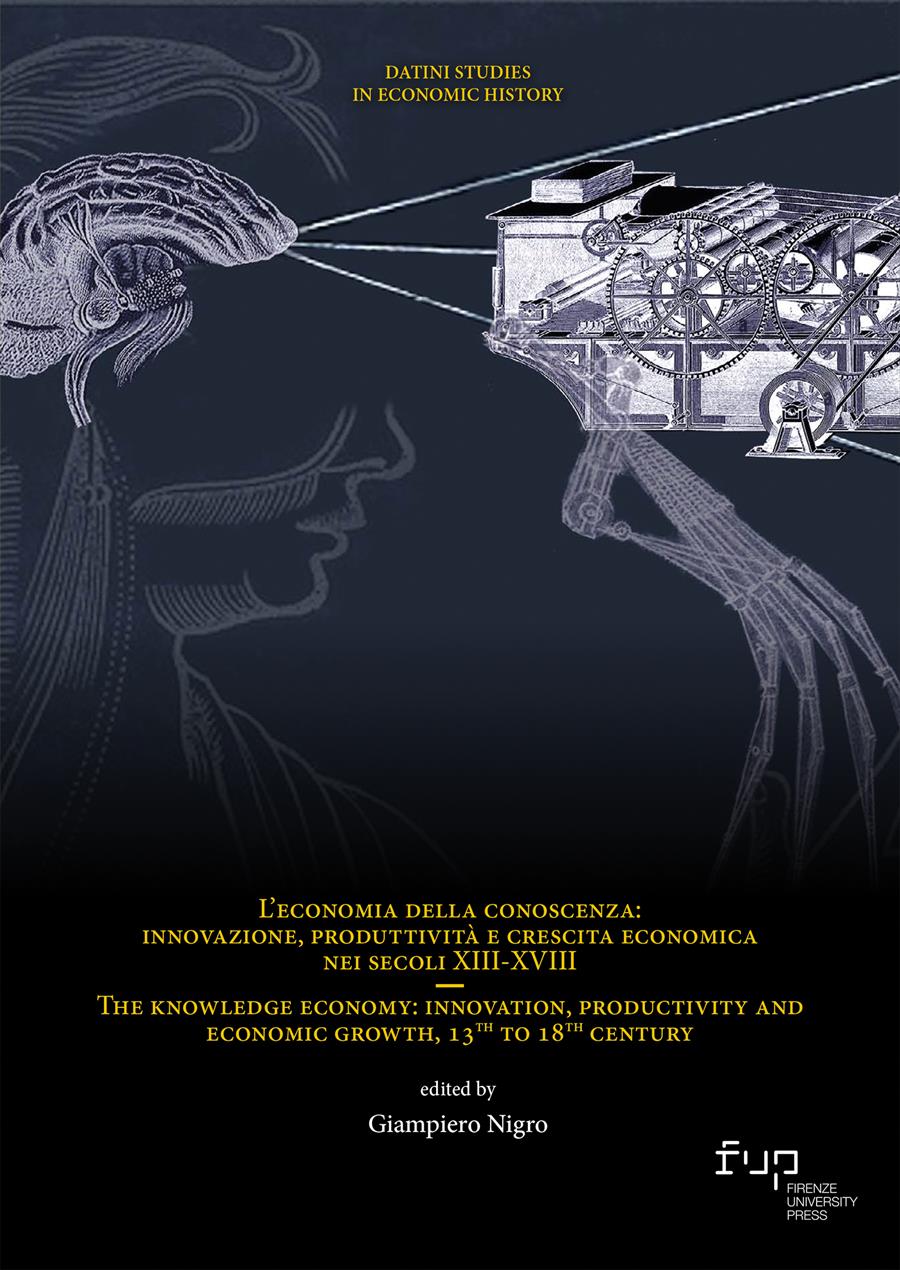Promotion of high-quality textiles by prize competitions during the Enlightenment in Saxony. From raw material to finished product manufacturing
- Seiji Horii
- © 2023 Author(s) |
- CC BY 4.0
- DOI: 10.36253/979-12-215-0092-9.07
Preisaufgabe, or «prize competitions» were implemented in Saxony in 1764 to promote industry after the Seven Years’ War. We investigated the purpose of them and by whom, by analysing primary historical texts to uncover four criteria: (1) the best quality prototypes; (2) equivalent quality to foreign products; (3) establishment of training facilities, and (4) manufacture of new products. The competitions promoted high-quality products and disseminated knowledge. Numerous prototypes were submitted and prizes awarded. Most participants were already engaged in textile or related industries and the strategy relied on this intellectual foundation. Assessment of Saxony’s situation and enlightenment principles informed the competitions.
- Keywords:
- prize competitions (Preisaufgabe),
- textual analysis,
- knowledge diffusion,
- textile industry,
- enlightenment,
Chuo Gakuin University, Japan
- Bein, Louis. 1884. Die Industrie des sächsischen Voigtlandes: Die Textilindustrie, vol. 2. Leipzig: Duncker & Humblot.
- Blaschke, Karlheinz. 1967. Bevölkerungsgeschichte von Sachsen bis zur industriellen Revolution. Weimar: Hermann Böhlau Verlag.
- Bochmann, Andreas, Achim Dresler, and Wolf Tietze 1995. “Thecity of Chemnitz in Saxony (Germany) building its new economic profile.” GeoJournal 37: 539-47.
- Bödeker, Hans Erich. 2012. “Economic societies in Germany, 1760-1820: Organisation, Social structures and fields of activities.” In The rise of economic societies in the eighteenth century, ed. Koen. Stapelbroek, and Jani Marjanen, 182-211. London: Palgrave Macmillan.
- Bosse, Heinrich. 2018. “Dialogische Öffentlichkeit. Preisfragen und Preisaufgaben im 18. Jahrhundert” Internationales Archiv für Sozialgeschichte der deutschen Literatur, 43, 2: 235-54.
- Crouzet, François. 1964. “Wars, blockade, and economic change in Europe, 1792-1815.” The Journal of Economic History 24: 567-588.
- Czok, Karl. 1989. Geschichte Sachsens. Weimar: Hermann Böhlaus Nachfolger.
- Eichler, Helga. 1978. “Die Leipziger ökonomische Societät im 18 Jahrhundert, in Deutsche Akademie der Wissenschaften zu Berlin.” Jahrbuch für Geschichte des Feudalismus, 2: 357-86.
- Forberger, Rudolf. 1958. Die Manufaktur in Sachsen, vom Ende des 16. bis zum Anfang des 19. Jahrhunderts. Berlin: Akademie-Verlag.
- Henderson, William O. 1985. Manufactories in Germany. Frankfurt am Main: Peter Lang.
- Horii, Seiji. 2020. “Introducing spinning machines in the late 18th century Saxony textile industry and the function of technical drawings: evidence from information collected by the Industrial Deputation.”社会経済史学”, 85: 397-418.
- Horii, Seiji. 2021. “The achievements of implementing the prize competitions for the Saxon textile industry during the late half of 18th century.” In Discussion Papers 2107. Graduate School of Economics: Kobe University.
- Karlsch, Rainer, and Michael Schäfer. 2006. Wirtschaftsgeschichte Sachsens im Industriezeitalter. Leipzig: Edition Leipzig.
- Kaufhold, Karl Heinrich 1986. Gewerbelamdschaften in der frühen Neuzeit, in Gewerbe- und Industrielandschaften vom Spätmittelalter bis ins 20. Jahrhundert, ed. Hans Pohl. Stuttgart: F. Steiner Verlag Wiesbaden.
- Kowalski, Kamil, Matera Rafal, and Mariusz E. Sokołowicz. 2018. In “Cotton matters. A recognition and comparison of the cottonopolises in Central-Eastern Europe during the Industrial Revolution.” Fibres & Textiles in Eastern Europe 26: 16-23. DOI: 10.5604/01.3001.0012.5162
- Knowledge Ecology International (KEI). 2008. “Selected innovation prizes and reward programs.” In KEI Research Note. Knowledge Ecology International (KEI). <https://www.keionline.org/book/kei-issues-report-on-selected-innovation-prizes-and-reward-programs> (2008-5-20)
- Keller, Katrin. 2002. “Saxony: Rétablissement and enlightened absolutism.” German History 20: 309-31.
- Kraatz, Anne. 1989. Lace: History and fashion. London: Thames and Hudson.
- Morota, Minoru. 1962. “17・8世紀西南ドイツの特権コンパニーについて-「農村工業」と「問屋制度」との対抗の焦点.” 商学論集, 30: 255-312.
- Rübberdt, Rudolf. 1934. Die Ökonomischen Sozietäten: Ein Beitrag zur Wirtschaftsgeschichte des XVIII. Jahrhunderts. Würzburg: Konrad Triltsch.
- Schäfer, Michael. 2015. “Global markets and regional industrialization: The emergence of the Saxon textile industry, 1790-1914.” In Regions, Industries, and heritage: Perspectives on economy, society, and culture in modern Western Europe, ed. Juliane Czierpka, Kathrin Oerters, and Nora Thorade, 116-35. London: Palgrave Macmillan. DOI: 10.1057/9781137333414
- Schöne, Andreas. 2001. Die Leipziger ökonomische Sozietät 1763 bis 1825, in Horst-Springer-Stiftung für Neuere Geschichte Sachsens in der Friedrich-Ebert-Stiftung; Titel nur online veröffentlicht. http://library.fes.de/fulltext/historiker/01081.htm (2023-31-01)
- Stöbe, Frank. 1996. “Zur Geschichte der Leipziger Ökonomischen Societät.” in Zur Geschichte der Landwirtschaft in Sachsen: Beiträge des Kolloquiums der Arbeitsgruppe "Geschichte der Leipziger Ökonomischen Societät" in der Leipziger Ökonomische Societät e.V. am 16. September 1995, ed. D. Fuchs, 40-45. Leipzig: Leipziger Ökonomischen Societät e.V. Leipzig.
- Suzuki, Yoshitaka. 2006. “East Asian goods and the substitution of raw materials in European industries during the eighteenth century”, 社会経済史学, 72: 293-308.
- Oshima, Takao. 1963. “ドイツ産業革命の一側面 - ザクセン綿織物工業における機械制大工業化過程.” 史林, 46: 449-183.
- Schlechte, Horst. 1958. Die Staatsreform in Kursachsen 1762-1763. Quellen zum Kursächsischen Rétablissement nach dem Siebenjährigen Kriege. Berlin: Rütten & Loening.
- Tilly, Richard H., and Michael Kopsidis. 2020. From old regime to industrial state. A history of German industrialization from the eighteenth century to World War I. Chicago: University of Chicago Press.
- Tsurui, Yuji, Noriko Iida, Chieko Joraku, and Izumi Tsuneyama. 2009. 養蚕.”財団法人大日本蚕糸会 蚕業技術研究所. http://www.silk.or.jp/silk_gijyutu/yousan.html (2023-31-01)
- Yazawa, Daigo. 2006. “ザクセン機械製造業におけるイギリス技術の移転と波及 -19世紀前半ドイツ初期工業化の時期を中心に.” 早稲田経済学研究 63: 25-47.
Chapter Information
Chapter Title
Promotion of high-quality textiles by prize competitions during the Enlightenment in Saxony. From raw material to finished product manufacturing
Authors
Seiji Horii
Language
English
DOI
10.36253/979-12-215-0092-9.07
Peer Reviewed
Publication Year
2023
Copyright Information
© 2023 Author(s)
Content License
Metadata License
Bibliographic Information
Book Title
L’economia della conoscenza: innovazione, produttività e crescita economica nei secoli XIII-XVIII / The knowledge economy: innovation, productivity and economic growth, 13th to 18th century
Editors
Giampiero Nigro
Peer Reviewed
Number of Pages
456
Publication Year
2023
Copyright Information
© 2023 Author(s)
Content License
Metadata License
Publisher Name
Firenze University Press
DOI
10.36253/979-12-215-0092-9
ISBN Print
979-12-215-0091-2
eISBN (pdf)
979-12-215-0092-9
Series Title
Datini Studies in Economic History
Series ISSN
2975-1241
Series E-ISSN
2975-1195
